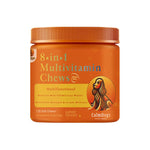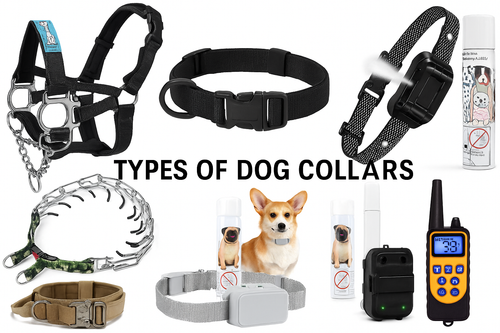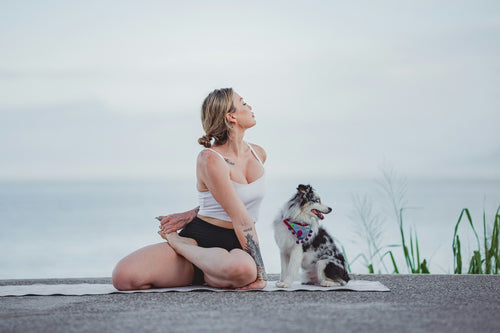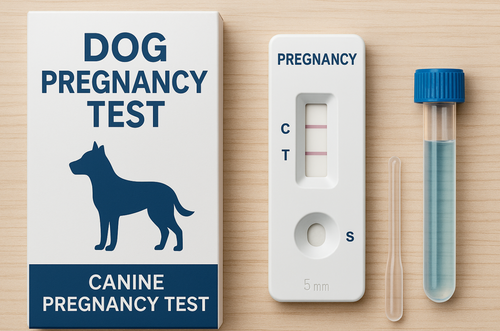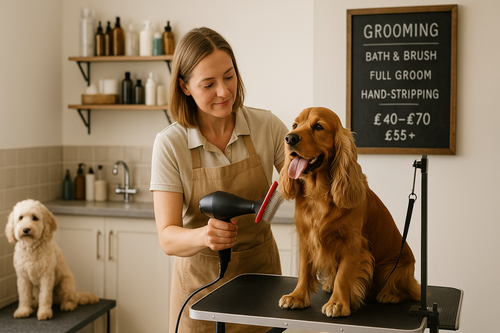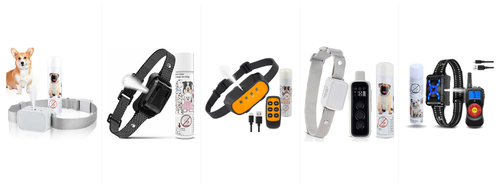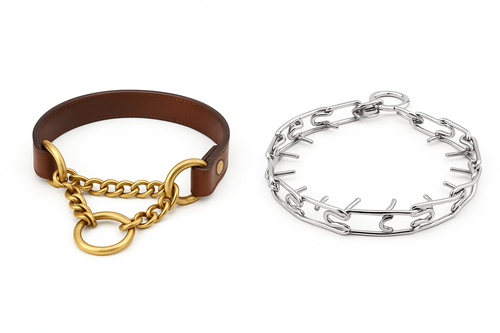🦴 First Sniff: How Long Do Dogs Live?
One of the first questions new pet parents often ask is, "How long do dogs live?" While it varies based on breed, genetics, size, and lifestyle, the average lifespan of a dog typically ranges from 10 to 15 years. Smaller dogs tend to live longer than larger breeds, and mixed breeds often outlive purebreds. But there’s a lot more to it.
This blog post dives into average canine lifespans, the longevity of the 10 most popular dog breeds, and how you can help extend your dog’s life through better care and nutrition.
📊 Average Dog Lifespan: By Size & Breed Type
| Dog Size | Average Lifespan |
|---|---|
| Toy/Small Breeds | 12–16 years |
| Medium Breeds | 10–14 years |
| Large Breeds | 8–12 years |
| Giant Breeds | 6–10 years |
Key Insight: Small breeds like Chihuahuas and Dachshunds often live longer than larger breeds like Great Danes or Saint Bernards.
🐶 10 Most Popular Dog Breeds & Their Life Expectancy

Let’s explore the 10 most popular dog breeds (according to UK & US kennel clubs) and their typical lifespan ranges:
1. Labrador Retriever
Lifespan: 10–12 years
Notes: Prone to hip dysplasia and obesity. Keep active and control food intake.
2. French Bulldog
Lifespan: 10–12 years
Notes: Brachycephalic breed – monitor breathing and avoid overheating.
3. German Shepherd
Lifespan: 9–13 years
Notes: Large breed with common hip and joint issues; early training is essential.
4. Golden Retriever
Lifespan: 10–12 years
Notes: Prone to cancer and heart conditions. Regular vet checks recommended.
5. Poodle (All Sizes)
Lifespan: 12–18 years
Notes: Intelligent and low-shedding, but needs regular grooming.
6. Bulldog (English Bulldog)
Lifespan: 8–10 years
Notes: Needs monitored exercise due to respiratory challenges.
7. Beagle
Lifespan: 12–15 years
Notes: Scent-driven and curious, prone to obesity if not exercised.
8. Dachshund
Lifespan: 12–16 years
Notes: Risk of back problems; avoid stairs and jumping.
9. Rottweiler
Lifespan: 8–10 years
Notes: Strong and loyal; regular exercise and training are key.
10. Yorkshire Terrier
Lifespan: 13–16 years
Notes: Small but confident, needs dental care and a balanced diet.
🧬 What Affects How Long Dogs Live?

There’s more to a dog’s lifespan than just breed. Here are key factors that impact dog longevity:
✅ Genetics
Inherited conditions, breed lines, and parent health can greatly influence lifespan.
✅ Size
Smaller dogs often live longer than larger ones. Larger breeds age faster due to accelerated growth and stress on organs.
✅ Diet & Nutrition
High-quality food, portion control, and proper nutrients contribute significantly to long-term health.
✅ Exercise
Regular walks, play, and mental stimulation prevent obesity, joint problems, and depression.
✅ Vet Care
Routine checkups, vaccinations, dental cleanings, and early detection of disease can add years to your dog’s life.
✅ Neutering/Spaying
Sterilized dogs statistically live longer, possibly due to reduced cancer risks and roaming behavior.
✅ Dental Health
Dogs with poor dental hygiene can suffer from infections that affect vital organs like the heart.
🐕 How to Help Your Dog Live Longer

Want to maximize your dog’s lifespan? Here’s a guide based on expert vet advice:
🥗 1. Feed a Balanced, Age-Appropriate Diet
Choose high-quality food designed for your dog’s breed and life stage. Watch for food allergies and avoid harmful human foods (like chocolate, grapes, and onions).
🧼 2. Keep Your Dog Clean & Groomed
Regular grooming prevents skin infections and parasites, and lets you spot early signs of health issues.
🧠 3. Stimulate Their Brain
Puzzle toys, training sessions, and games keep your dog sharp and reduce stress and boredom.
🏃 4. Provide Daily Exercise
Whether it’s long walks, fetch, or agility training, exercise is essential for heart health and mental well-being.
🦷 5. Brush Teeth or Use Dental Treats
Dental disease affects over 80% of dogs. Use canine toothbrushes or vet-approved dental chews.
💉 6. Stay Current on Vaccinations & Vet Visits
Annual health checks can catch issues before they become serious. Vaccines help prevent deadly diseases like parvovirus and distemper.
🌡️ 7. Watch for Sudden Changes
Weight loss, limping, strange behavior, or appetite changes are signs to contact your vet ASAP.
🐾 8. Consider Supplements
Joint health, coat condition, and immune support can be boosted with vet-approved supplements.
🛒 Need a training solution to support your dog’s well-being?
Explore our dog training collars designed to help reduce anxiety and unwanted behaviors — gentle, waterproof, and great for long-term health and obedience.
📍 Real Dog Owner Insight: "My Dachshund Lived to 17!"
"By sticking to a strict no-human-food policy, giving daily walks, and routine vet checks, my dachshund Max lived a healthy, playful life until the age of 17!"
— Julia M., Oxfordshire
🌿 Natural Ways to Boost Dog Lifespan
If you're into holistic care, here are natural tips:
-
Coconut oil (in moderation) helps coat and brain health
-
Turmeric supplements may reduce inflammation
-
CBD oil (vet-approved) can help older dogs with anxiety and joint pain
-
Herbal calming chews (chamomile, valerian root) can reduce stress
Always check with your vet before introducing new supplements.
🧓 Senior Dog Care: Making Golden Years Comfortable

Older dogs need extra care:
-
Softer bedding for joints
-
More frequent vet checkups
-
Adjusted diets with fewer calories
-
Supplements for joint and vision support
-
Less intense exercise, but still active
📦 Recommended Products for Lifespan Support
-
✅ Waterproof Dog Training Collar – Calmshops.co.uk
-
✅ Joint care supplements (glucosamine, chondroitin)
-
✅ Memory foam dog beds
-
✅ Raised bowls for large breeds
-
✅ Calming sprays or diffusers for anxious pets
💬 Final Bark: Cherish Every Moment
So, how long do dogs live? The answer varies, but you can significantly impact that number. With love, nutrition, exercise, and smart care, your dog can live a longer, healthier, and happier life by your side.




